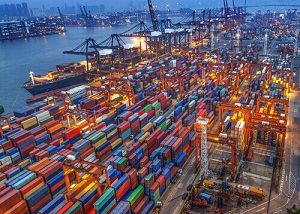Blowing the Whistle on Tariff Dodgers

Faced with higher tariffs, some importers seek unlawful means to avoid those costs. As tariff evasion schemes multiply and become more valuable, whistleblowers can play a critical role in exposing these schemes, and can receive a financial reward for doing so.
In an article titled Tariff Dodgers Stand to Profit Off U.S.-China Trade Dispute, the New York Times described the schemes that companies importing goods to the United States are planning in order to evade new tariffs imposed by the Trump administration. These schemes, including transshipments, relabeling, and transfers between international subsidiaries, have long been exploited, and have become more valuable as tariffs have increased. As the Times article notes, many of these schemes are illegal.
Unlawful tariff evasion schemes thwart U.S. trade policy, reduce revenue for the government, and harm competitors who follow the law and pay their fair share.
Examples of Tariff Fraud Schemes
Customs fraud can take a number of different forms. For example:
- An importer may misstate the country of origin to avoid anti-dumping fines and other country-specific duties. Such country of origin fraud is often accomplished through the sort of transshipping structures described in the New York Times article. Goods are first sent to a third country, re-labelled, and then imported to the US. In 2012, a Japanese ink company agreed to pay $45 million to settle a lawsuit that accused it of labelling ink as being from Japan and Mexico, when in fact it was manufactured in China and India, to avoid anti-dumping and countervailing duties imposed on ink from China and India.
- An importer may misclassify what it is importing, claiming its products are a type that is subject to a lower tariff. In 2018, a furniture importer agreed to pay $10.5 million to settle claims that it had wrongly classified the wooden bedroom furniture it was importing as non-bedroom furniture, because it wanted to avoid a 216% anti-dumping duty on wooden bedroom furniture.
- An importer may misrepresent the value of the goods it is importing. In 2016, a clothing manufacturer agreed to pay $13.375 million to settle a lawsuit that accused it of keeping two sets of invoices – one that undervalued the garments and was presented to the government for calculation of the appropriate duty, and one that reflected the actual value.
- An importer may split shipments to stay below a dollar threshold. Constantine Cannon represented a whistleblower who reported that his former employer routinely split US-bound orders into separate shipments to avoid duties by artificially keeping the shipment value below a dollar threshold. The company agreed to pay $908,000, and the whistleblower received 18% of that settlement as a reward.
The Importance of Tariff Fraud Whistleblowers
Customs fraud can be very hard for the government to catch without information provided by insiders with knowledge of the schemes. Whistleblowers who report unlawful tariff evasion by bringing a claim under the False Claims Act may be entitled to a financial reward if the government recovers money.
Anyone with knowledge of customs fraud may be eligible to be a whistleblower, and an individual need not be an American citizen to receive a reward under the False Claims Act. Employees and former employees of importers, of others involved in the shipments, and of the American customers all may have information about customs fraud that could lead to a claim and financial reward under the False Claims Act. In addition, competitors may be in a position to act as whistleblowers if they have knowledge that others in their industry are cheating. Companies can bring claims and receive whistleblower rewards under the False Claims Act.
If you have information that you believe demonstrates customs fraud, and would like to speak to an attorney, please contact the experienced False Claims Act attorneys at Constantine Cannon. In addition to our US offices, our London office gives us the unique ability to serve whistleblower clients around the world.
Read More:
- Pure Collection pays $908,100 in customs fraud case brought by whistleblower represented by Constantine Cannon
- British Whistleblowers can Make Millions under US Laws if they shop UK companies
- Blowing the whistle on Fraud in Government Programs
- False Claims Act
- I Think I Have a Whistleblower Case
Tagged in: Customs Fraud, FCA Federal,